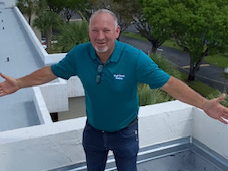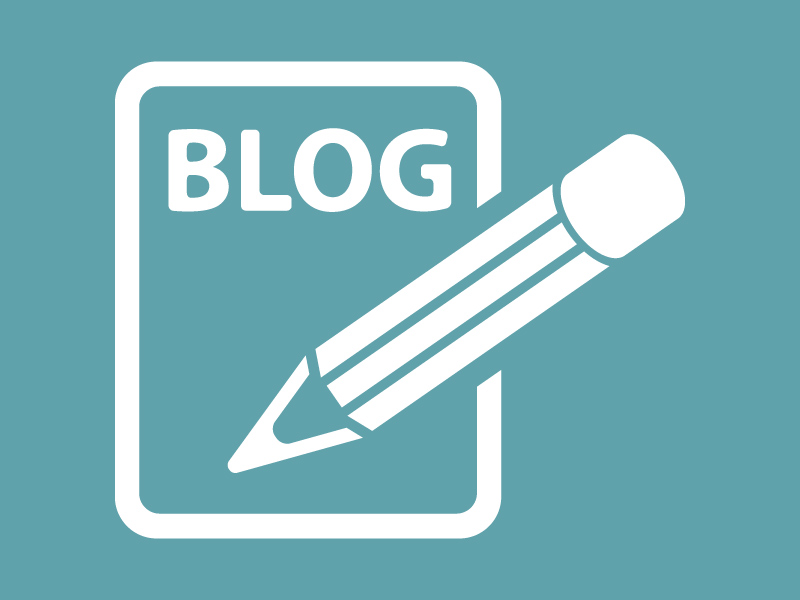Roofing FAQs
Roofing FAQs for Miami, Palm Beach, & Broward County Residents
Your roof isn’t just what keeps your house covered – it’s your home’s first line of defense against South Florida’s unpredictable climate. Between the seasonal hurricanes, year-round heat, and sudden downpours, Miami, Palm Beach, and Broward County pose unique challenges for home and business owners. So, when it comes to roof maintenance and repairs, understanding the risks you face and how to handle them can often be confusing and leave you frustrated.
This guide to common roofing questions covers many of the issues that property owners can face. With our slew of roofing tips and advice on things like common hazards, preventative maintenance, and selecting materials that are best suited for South Florida’s climate, you’ll feel confident in how to keep your roof in top shape, no matter what nature brings.
Regular Roof Maintenance FAQs
Taking care of your roof regularly means addressing many unique factors, especially when it comes to handling the subtropical climate of South Florida. Below you’ll find a few common questions and answers about roof upkeep and installation.
At Paul Bange Roofing, we recommend having your roof inspected at a minimum of once a year. However, a few situations can change this and require more frequent inspections:
- After a major storm or hurricane
- Before you put your home on the market
- Before purchasing a new homeowner’s insurance policy
When you have your roof inspected, don’t settle for doing it yourself; let Paul Bange Roofing take care of your roof inspection for you. We can provide comprehensive roof inspections that will detail any weaknesses and dangers that can impact your roof, helping you save on maintenance costs and avoid costly repairs in the future.
After a storm or hurricane, it can be difficult to know whether your roof is damaged. A few common signs of roof damage include:
- Leaks: Roof leaks can indicate substantial damage to your roof and home. Leaks can impact electrical systems, create structural damage, and allow for mold to grow. Aging roofs, clogged gutters, and standing water can all lead to leaks.
- Loose Tree Limbs Resting on Your Roof: After storms, tree limbs can fall and damage your roof shingles or tiles. Tree limbs on the roof are easily visible but are best not left unattended as they can impact parts of your home like power lines or TV antennas.
- Sagging Roof: Visibly sagging roofs can indicate deep damage or rot in your home’s structure, especially from long-term water damage or deeper physical damage from storms.
- Missing Tiles or Shingles: Especially in South Florida, hurricane and tropical storm-force winds can pull tiles or shingles away from your roof. This can expose your roof to deeper damage, as well as leaks and more damage.
- Standing Water: After heavy rainfall, standing water can accumulate, especially if you have clogged or broken gutters. Standing water can cause a roof to sag and create leaks and rot for your property’s structural integrity.
- Mold Growth: Standing water or leaks can allow mold to appear in your home, especially in places already heavy with moisture, like a bathroom or laundry room. Mold can cause health problems for those with certain conditions, create allergy-like symptoms, or worsen those conditions.
While visible signs of damage like missing tiles or shingles can indicate surface-level issues, not all damage is easily recognized this way. Contact Paul Bange Roofing for your next roof inspection or repair, and we’ll take care of the rest, whether that means putting in new shingles or advising for more corrective roof maintenance.
While there’s no guaranteed way to prevent damage from hurricanes and storms, you can practice regular roof maintenance to guard against roof damage and avoid extensive roof repairs:
- Trim Branches of Overhanging Trees: Loose tree limbs on your roof can damage shingles, power lines, or TV antennas. Trimming any branches that overhang your roof can prevent this kind of damage when storms or hurricanes come through.
- Ensure Clean Tiles and Shingles: Dirty tiles and shingles can trap moisture, encourage mold and algae growth, compromise the integrity of your roof, and potentially cause leaks. Clean tiles and shingles will help ensure your roof’s longevity and support your property’s curb appeal.
- Regularly Clear Your Gutters: Clean gutters channel rainwater away from your home and property, preserving your roof and foundation against erosion or leaks.
- Schedule Regular Inspections: Having regular roof inspections and performing other roof maintenance services regularly will keep your roof in tip-top shape and ensure a safe, attractive home for the lifespan of your roof.
These actions will ensure your roof is ready for whatever the diverse weather conditions of South Florida may bring.
A new roof installation in South Florida can have a wide range of costs, especially depending on damage, size, and materials chosen. Generally, costs can run from $5,000 to $15,000 for most standard roof installations using asphalt shingles. However, individual style, property size, and labor and materials cost can alter your final price. If you’re looking for a new roof, contact us for a free estimate.
Yes. Miami-Dade, Palm Beach, and Broward Counties have strict building codes in place to protect against hurricanes and other kinds of weather damage. At Paul Bange Roofing, we’re well-versed in all the relevant regulations of your local building department. We can provide valuable guidance on the kinds of permits and inspection methods that may be required for your roof.
A new roof should have you feeling confident in it for between 20 and 30 years. However, many factors can impact this, including natural wear and tear, the local weather, storm weather and disasters, and the overall craftsmanship of your roof. These factors will impact your roof’s overall lifespan.
South Florida has a diverse range of intense weather conditions. From the abundant sunlight and heavy rainfall to the annual hurricane season, all these factors can wreak havoc on roofs. Below, we break down some of the most common roofing issues for Miami, Palm Beach, and Broward County property owners:
- Hurricane Damage: Hurricane-force winds can rip shingles off roofs, fling debris, or even cause partial roof collapse. Regular inspections, choosing the right materials, and hiring expert craftsmen for your roof is critical to staying ahead of Mother Nature.
- Intense Heat and UV Exposure: With its year-round sunlight, South Florida’s climate constantly exposes roofs to extreme UV rays and heat. This can cause your roof to suffer from cracking tiles, warped shingles, and fading coatings.
- Heavy Rainfall and Moisture Concerns: Frequent storms and rainfall are a danger to many properties in South Florida. This can lead to standing water, leaks, and mold formation if your roof lacks an effective drainage system.
Roof hazards like this mean that regular roof inspections are critical, whether you’re looking to take care of a commercial property or your own home.
Given the unique climate challenges of Miami, Palm Beach, and Broward County, it’s crucial to carefully select roofing materials appropriate for the climate. You’ll want the best materials that can withstand heavy heat, wind, and rain while providing energy efficiency. Consider these popular roofing materials:
- Tile Roofing: Tile roofing is a popular choice for South Florida homes. Everyone is familiar with its beauty and durability, given how it can resist extreme heat and hurricanes. Despite the higher cost of tiles and the need for a stronger foundation, tiles are an excellent option for your home or business. They are also available in many styles and are environmentally friendly.
- Metal Roofing: Metal roofs are often used for commercial properties but are just as good for your home as they are for your business. Metal roofs are low-cost, lightweight, and very durable. They don’t spark in lightning storms or catch fire, and often last over 50 years when compared to other materials like shingles. They’re also reflective, reducing heat absorption and decreasing cooling costs.
- Shingle Roofing: Durable, cost-effective, and often recyclable, shingles are a common roofing material in South Florida. Asphalt or architectural shingles are the most common, as they are designed to withstand high winds and UV rays and are very energy efficient. Furthermore, shingles are available in many patterns and styles for your property’s appearance.
- Built Up Roof (BUR) Membranes: Built Up Roofing, often called “tar and gravel” roofing, has been around for over 100 years and is incredibly popular. It is composed of alternating layers of bitumen and organic or fiberglass mats that help create a highly durable, continuously sealed surface that is energy efficient.
Remember, materials are only one aspect of a new roof installation. Choosing the right roofing system for your property as well as the right style of roof will go a long way to ensuring its safety and longevity while keeping costs down.
Yes! We can provide a free roof inspection, where we’ll review any manufacturer defects, existing weather damage, UV degradation, missing tiles or shingles, and provide a clear and comprehensive report detailing all these factors for you in clear, straightforward terms.
Yes! After a storm or sudden damage, we can provide rapid and reliable service to your home or property.
¡Sí! Nuestros asesores de techos pueden comunicarse cómodamente en español o inglés según sea necesario.
(Yes! Our roofing consultants can communicate comfortably in Spanish or English as required.)
Contact Paul Bange Roofing for All Your Roofing Needs
We’ve proudly served South Florida communities for over 30 years, and we’re delighted to provide top-quality service, no matter the size or scale of your roofing needs. Want to get more roofing tips and advice? Contact one of our friendly representatives over the phone or email, or read more about common roofing questions on our blog today.
Request a Free Roofing Consultation
Call Us
Broward: 954-981-7663
Dade: 305-981-7663
Se Habla Espanol
Visit Us
7000 SW 21st Place
Davie, FL 33317





